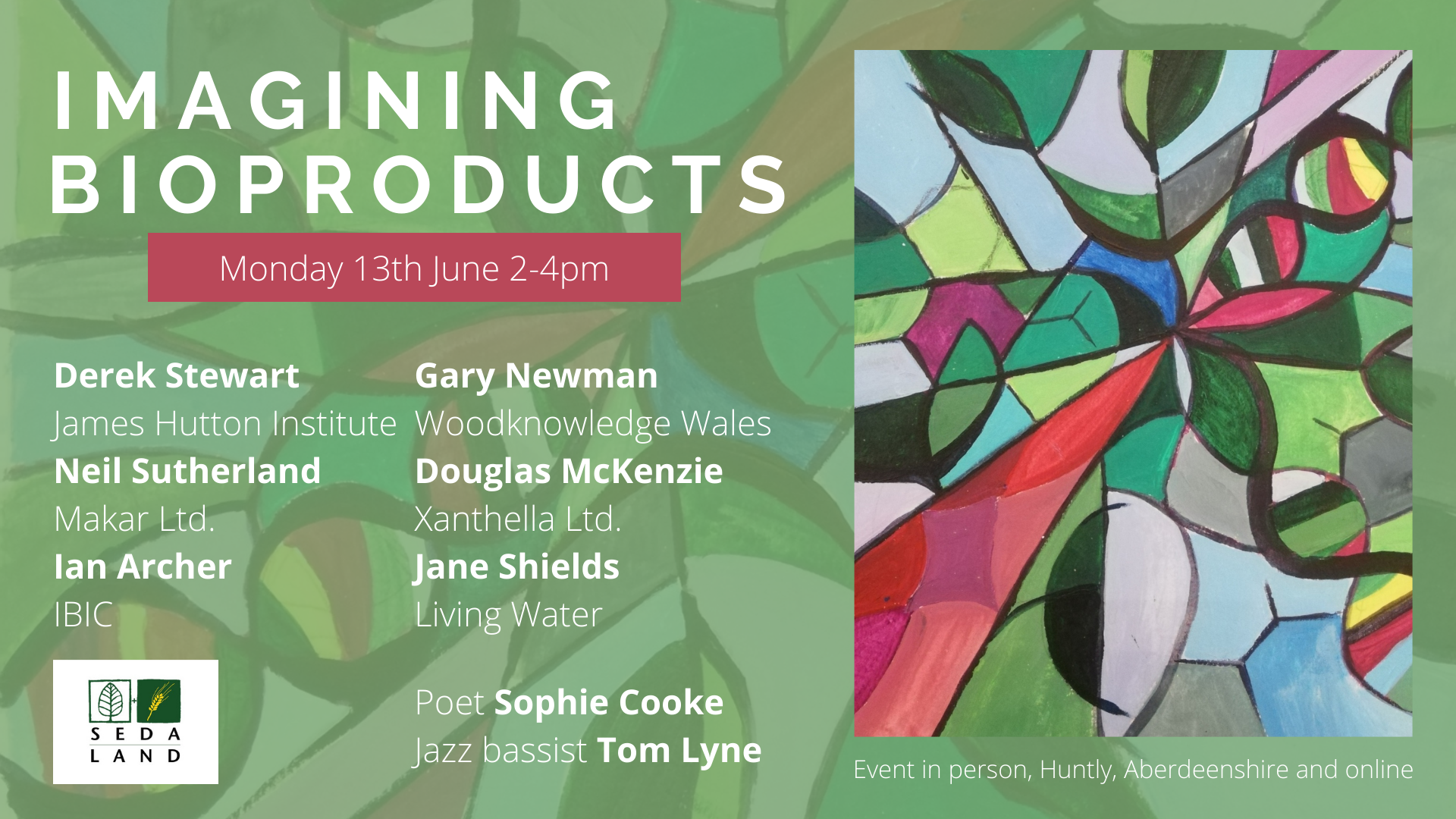Part of the double bill: Imagining Bioproducts and Reimagining Food
This is a hybrid event, live in Huntly and online. Click here to view full event details
SEDA Land Conversations. Led by the science. Inspired by art, tradition and innovation.
Does Scotland’s land provide enough food, fibre and timber for our needs, or are crucial commodities imported? Is the land managed sustainably, or is it degrading? Do people and communities have a say in how the land around them is managed and what it produces? And does reliance on imports lead to ecological destruction in other parts of the world?
In Scotland today much of our staple food and most timber is imported, land and its biodiversity in many areas is degrading.
However it does not have to be this way. SEDA Land invite you to join a panel of experts who are committed to regeneration, innovation and sufficiency. They will discuss the best ways forward to use land differently, creating sustainable industries working with local communities. Discover new and exciting possibilities with people who are already doing it.
Imagining Bioproducts
Plants, animals and microbes have been providing bioproducts throughout human existence including timber for building, medicinal extracts, natural rubber, and fibres from wool, flax and hemp. Bioproducts are particularly important to us today because they provide an alternative to petroleum-based products and so reduce dependency on fossil fuels. Science is rapidly developing new bioproducts for a wide range of innovative uses. For energy, biomaterials can generate fuels for heat or power. We can manufacture biofoams, biorubber, and biocomposites from plant products that can be used in construction including vehicle parts as well as pharmaceuticals (vaccines and antibodies), soaps and cosmetics, and chemicals and resins (paints, lubricants and solvents) for industrial use.
Biotechnological innovation can offer a sustainable approach but the benefits and risks of bioproducts need to be understood. Using waste from agriculture and forestry does not compromise other agricultural output such as food. But a bioproduct is not always biodegradable. A biobased paint for example will not biodegrade.
This Land Conversation will examine the current and potential range of bioproducts produced in Scotland, their environmental benefits and risks, the new value chains they bring, and in particular the options for increasing the quantity of bioproducts produced from the land without compromising the drive to food security. Science and technology is evolving rapidly with the potential to help communities and farmers diversify into new products with the associated benefits to the local economy and the environment.

